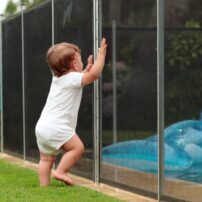 Increasingly, consumers are turning to generators for power in emergency situations, because the world is unpredictable. In some areas, year-round weather challenges are now the norm and are no longer just confined to a season.
Increasingly, consumers are turning to generators for power in emergency situations, because the world is unpredictable. In some areas, year-round weather challenges are now the norm and are no longer just confined to a season.
“Consumers want and need reliable power. When the electricity goes out, generators keep your home or business humming with light and power,” said Kris Kiser, President and CEO of the Outdoor Power Equipment Institute (OPEI). “Today’s generators offer a variety of features, and there is a product for every need. “
While shopping for your generator, Kiser recommends considering other equipment that could be useful in cleaning up after challenging weather such as a water pump, chain saw or pole pruner. “And don’t forget outdoor-rated extension cords and fuel cans,” Kiser said.
Below are some tips from OPEI for safe generator use.
Consider what you need.
When purchasing a generator, determine how many kilowatts you’ll need for essential items (charging family cell phones, a refrigerator, etc.) during an emergency.
Research generators online before purchasing.
Talk with the staff at the store or ask questions online. Discuss safety features and ask about manufacturer fueling and care instructions.
Generators offer a variety of features. For example:
- Circuit-breaker-protected outlets will guard against generator overload.
- A larger fuel tank will provide extra running time.
- Integrated fuel gauges will help keep tabs on fuel levels and prevent power interruptions.
- Low-tone mufflers make for quieter operation.
- Fold-down handles and wheels can make it easier to move your generator.
Keep an outdoor-rated extension cord on hand.
Be sure it’s long enough to place the generator a safe distance from your home, and is certified to carry the generator’s power load.
Identify where you will put the generator.
Place the generator outside and away from windows, doors and vents that could allow carbon monoxide to come indoors. Never put a generator in your home, garage, porch or breezeway. Give portable generators plenty of room for ventilation. Determine now how you will secure the generator.
Install a carbon monoxide detector.
Add this safety device to your home and be sure to keep extra batteries on hand for it.
Keep generators dry.
Before a storm hits, identify how to cover and vent the generator. Buy model-specific tents or generator covers online, at home centers or a hardware store.
Have the right fuel on hand before a storm hits.
Use an appropriate container that is designed to hold fuel and seals well.
Store fuel in a safe place away from heat sources and out of the reach of children.
Label the can with the date of purchase and the ethanol content. Check filled cans regularly and replenish them if needed. Remember, fuel more than 30 days old should not be used in any outdoor power equipment and can phase separate.
Use the type of fuel recommended by the generator manufacturer.
It’s illegal to use any fuel with more than 10% ethanol in outdoor power equipment (for more information on proper fueling for outdoor power equipment visit LookBeforeYouPump.com).
For safety information and to find out which manufacturers make various outdoor power equipment products, go to opei.org.























Comments